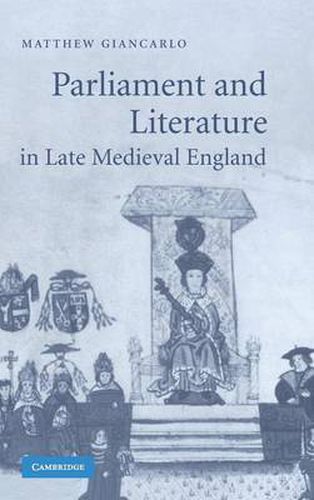Readings Newsletter
Become a Readings Member to make your shopping experience even easier.
Sign in or sign up for free!
You’re not far away from qualifying for FREE standard shipping within Australia
You’ve qualified for FREE standard shipping within Australia
The cart is loading…






Parliament and Literature in Late Medieval England investigates the relationship between the development of parliament and the practice of English poetry in the later fourteenth and early fifteenth centuries. During this period, the bureaucratic political culture of parliamentarians, clerks, and scribes overlapped with the artistic practice of major poets like Chaucer, Gower, and Langland, all of whom had strong ties to parliament. Matthew Giancarlo investigates these poets together in the specific context of parliamentary events and controversies, as well as in the broader environment of changing constitutional ideas. Two chapters provide fresh analyses of the parliamentary ideologies that developed from the thirteenth century onward, and four chapters investigate the parliamentary aspects of each poet, as well as the later Lancastrian imitators of Langland. This study demonstrates the importance of the changing parliamentary environs of late medieval England and their centrality to the early growth of English narrative and lyric forms.
$9.00 standard shipping within Australia
FREE standard shipping within Australia for orders over $100.00
Express & International shipping calculated at checkout
Parliament and Literature in Late Medieval England investigates the relationship between the development of parliament and the practice of English poetry in the later fourteenth and early fifteenth centuries. During this period, the bureaucratic political culture of parliamentarians, clerks, and scribes overlapped with the artistic practice of major poets like Chaucer, Gower, and Langland, all of whom had strong ties to parliament. Matthew Giancarlo investigates these poets together in the specific context of parliamentary events and controversies, as well as in the broader environment of changing constitutional ideas. Two chapters provide fresh analyses of the parliamentary ideologies that developed from the thirteenth century onward, and four chapters investigate the parliamentary aspects of each poet, as well as the later Lancastrian imitators of Langland. This study demonstrates the importance of the changing parliamentary environs of late medieval England and their centrality to the early growth of English narrative and lyric forms.